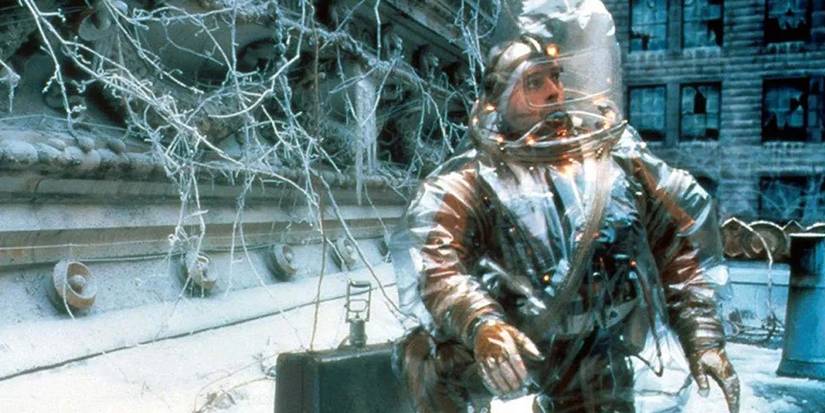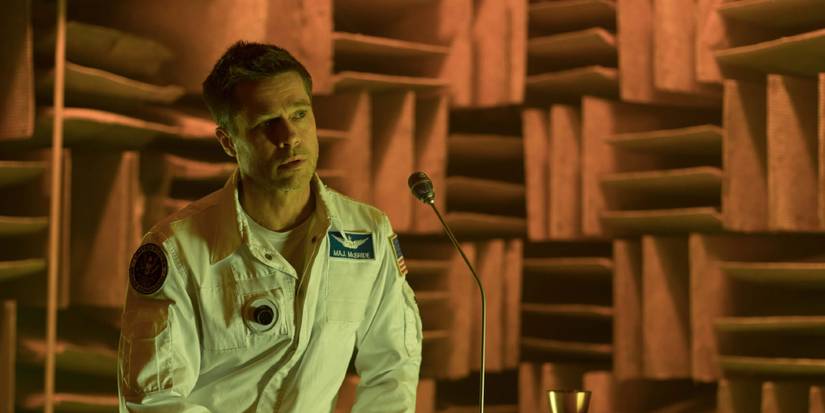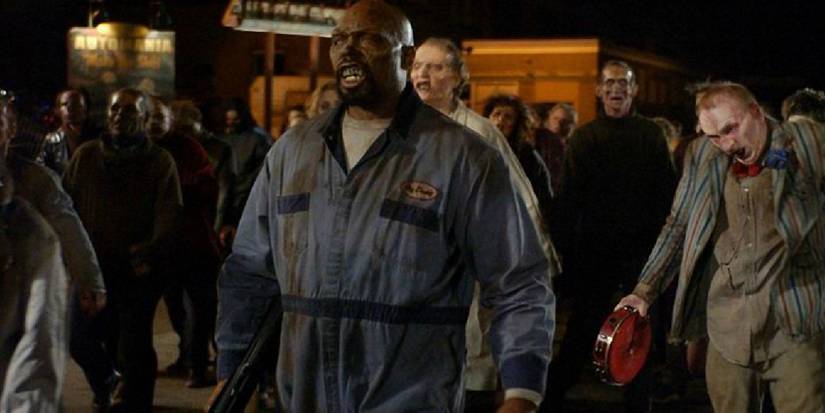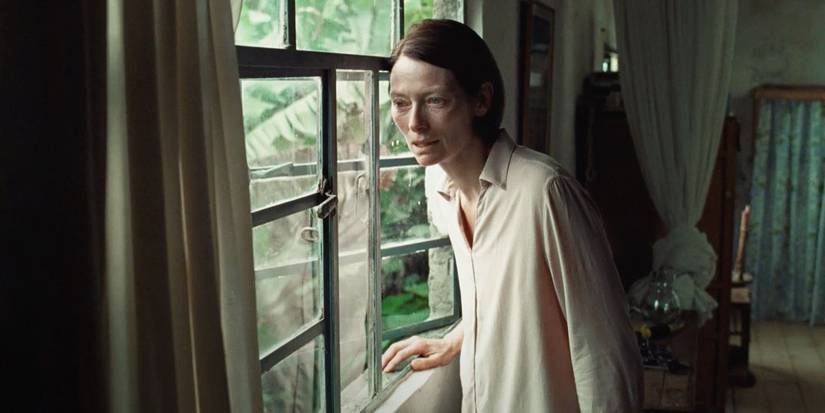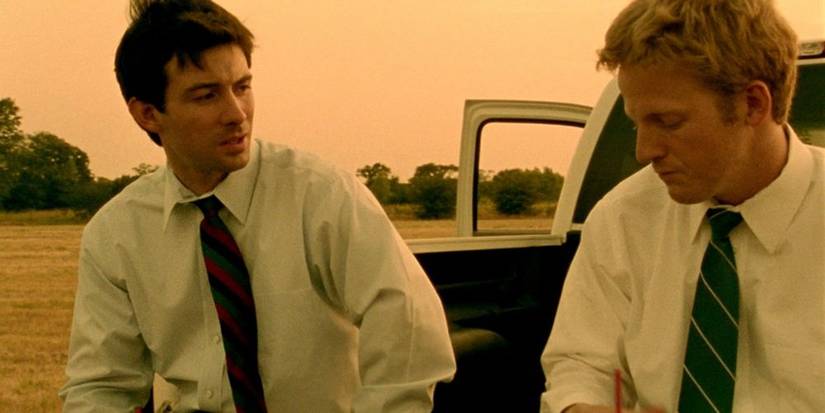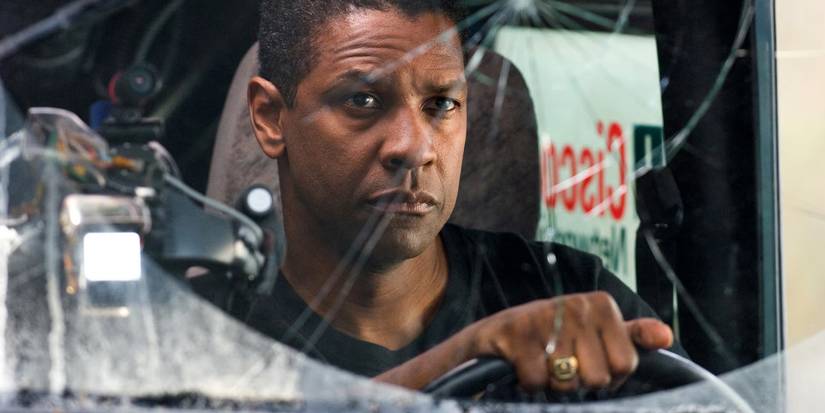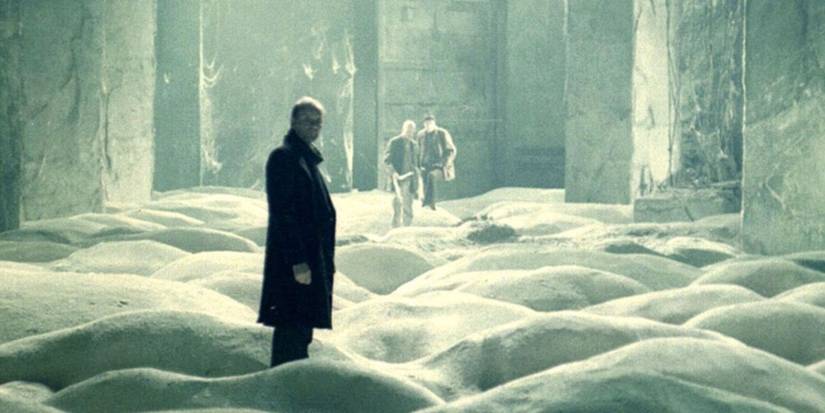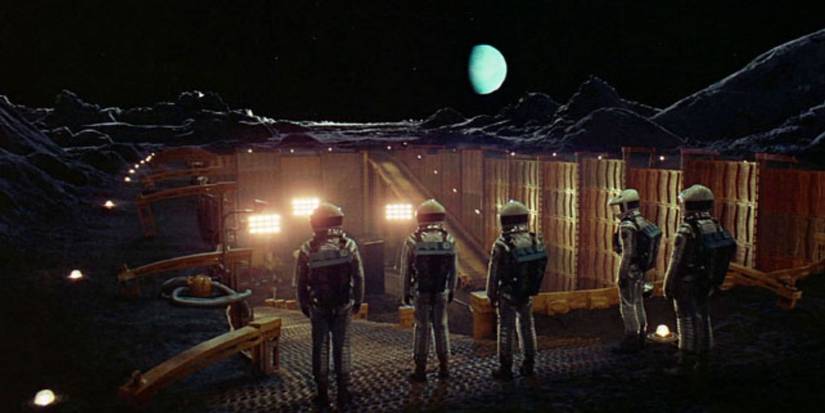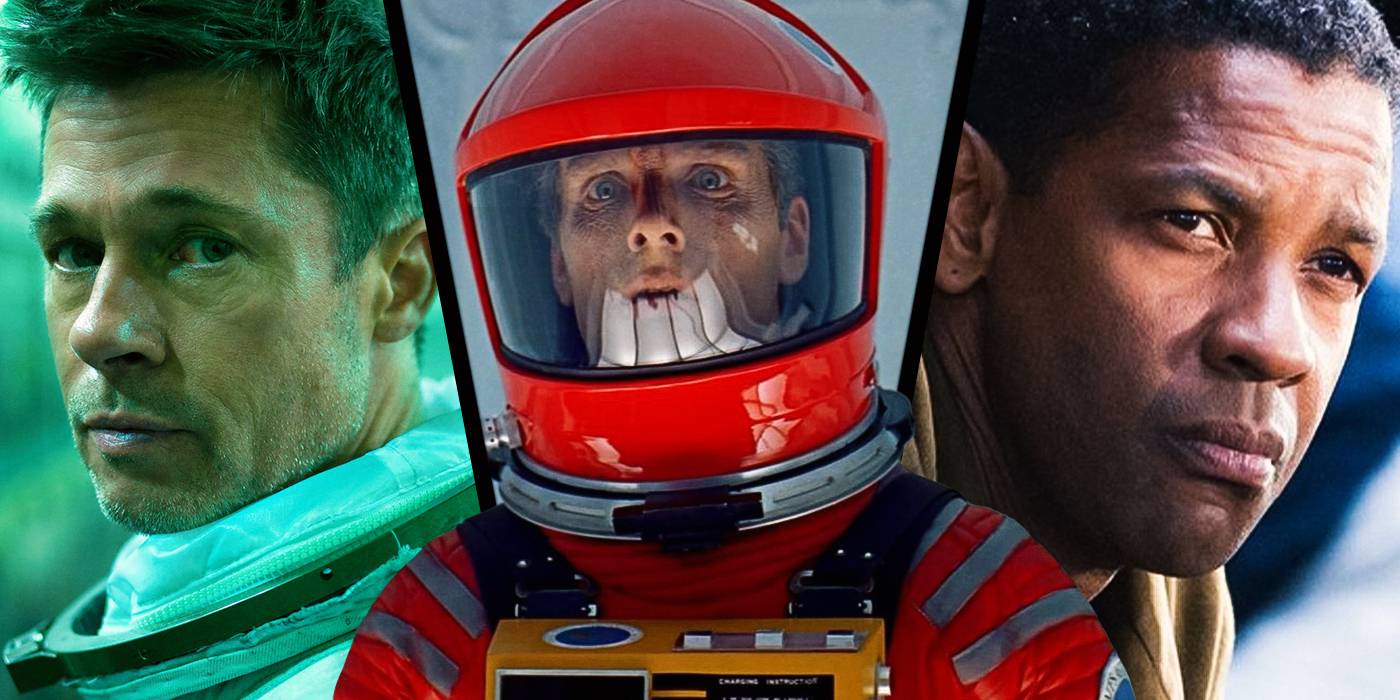
Sci-fi movies often use dystopian futures and otherworldly threats to reflect on humanity’s progress. The genre has changed a lot over the years. In the early days of cinema, pioneering sci-fi movies such as A Trip to the Moon and 20,000 Leagues Under the Sea showcased the audience’s fascination with what was beyond humanity’s reach at the time, namely the moon and the depths of the ocean. One century later, viewers are now experiencing futures predicted decades before by iconic sci-fi movies.
The sci-fi genre moved on to more complex themes such as time travel, artificial intelligence, simulations of reality, and so on. Its primary concern has always been exploring the evolution of mankind and the sheer absurdity of its existence. However, not every great sci-fi movie can be understood on a first watch. There are sci-fi masterpieces that require a deeper level of commitment from the audience to deliver their message. Here are a few thought-provoking sci-fi movies that will only make sense on a rewatch.
Predestination Explores the Many Paradoxes That Come with Time Travel
At first, Predestination seems like a conventional spy thriller with a time-travel twist. In typical one-last-job fashion, a nameless temporal agent is tasked with the most difficult mission of his life as his final assignment: to prevent a catastrophic bomb attack in New York in 1975. He realizes it’s his last chance to take down his nemesis, a mysterious character who has evaded him throughout multiple timelines.
Predestination then starts jumping back and forth between numerous characters who turn out to be the same person. The movie takes the many time paradoxes associated with time travel to an unbelievable extent, posing the following question: what if a mother, father, grandfather, and daughter are all the same person? It’s too much to follow on a first watch, but it all falls into place on a second viewing.
Blade Runner Wants the Audience to Reflect on What It Means to Be Human
Blade Runner is an influential sci-fi movie, but its existential themes transcend the dystopian reality presented by Ridley Scott. The movie revolves around Deckard, a special agent tasked with exterminating a group of violent androids who have escaped from space colonies in search of their creators. These androids are referred to as “replicants” in Blade Runner: bioengineered humans who, despite being machines, fear mortality and may be capable of empathy.
To this day, Blade Runner fans debate whether Deckard is a replicant or not. This is the first clear indication that the few answers the film provides are riddled with double meanings. The plot of Blade Runner is straightforward but incredibly layered. It’s a deep sci-fi story filled with hidden symbolism, examining the fundamental principles of humanity through the eyes of characters who may not be humans at all.
12 Monkeys Comes Full Circle in a Profound Way
Inspired by the equally complex short sci-fi movie La Jetée, 12 Monkeys initially takes place in the year 2035, when a deadly outbreak has wiped out most of humanity. In a risky attempt to save the world, convict James Cole is selected to go back to 1996 to help scientists develop a cure before it’s too late. However, Cole is mistakenly sent to 1990 and forced to confront mysterious memories from his past.
The entirety of Cole’s odyssey in 12 Monkeys orbits around a shocking plot twist at the end. It’s the moment his character arc comes full circle, and the jigsaw falls into place. However, the experience of watching the movie and knowing how Cole’s story comes back to the starting point feels much more rewarding.
Ad Astra Features a Moving Father-and-Son Allegory
Ad Astra has all the best attributes of a great sci-fi movie: zero-gravity action sequences, stunning space voyages, and an abundance of deep questions about the future of humanity. The premise is simple: astronaut Roy McBride sets out across the depths of the solar system in search of his lost father, Clifford, who one day left to look for alien life and never came back. While most of the movie takes place in space, its gaze is always directed towards Earth.
Ad Astra uses well-known sci-fi conventions to deconstruct the foundations of the genre. It refuses to see significance in the search for extraterrestrial life, instead focusing on the value of mankind. How many light-years must a man traverse to earn a father’s love? It’s a movie about unthinkable journeys in search of very simple answers, a moving simplicity that can only be fully appreciated on a rewatch.
Land of the Dead Is George A. Romero’s Most Philosophical Movie
In Land of the Dead, George A. Romero re-evaluates the zombie mythology he himself created. Known as the master of the zombies in cinema, Romero pioneered the most popular tropes that define the flesh-eating monsters. Moving away from the supernatural roots of the genre, Romero used the zombie apocalypse as a thought-provoking allegory for humanity’s self-destructive nature. While Night of the Living Dead and Dawn of the Dead are regarded as the best Romero zombie movies, he makes a bold statement in 2005’s Land of the Dead.
The movie shies away from the horror roots of Romero’s apocalypse to deliver a straightforward sci-fi story. Romero envisions a dystopian future where the rich can lead a comfortable life in a luxury high-rise inside a walled sanctuary, safe from the dangers of the outside. However, when zombies start evolving and showing signs of human intelligence, the safety of the sanctuary is put at risk. At first, Land of the Dead looks like a cheap sci-fi movie with an absurd message. However, it’s the culmination of an idea that Romero has been cultivating since Night of the Living Dead. He unveils human greed as the real threat and welcomes the audience to feel sympathy for the evolving zombies who, together, fight against the tyranny of humans.
Memoria Is a Sensory Journey Across Time
In Memoria, Tilda Swinton plays a Scottish woman in Colombia haunted by recurring sounds with no detectable origin. Searching for the meaning behind the strange noises, she sets out on a journey of self-discovery that leads her to the mysterious jungles of Colombia. Memoria is a subdued and provocative sci-fi movie that encourages the viewer to look for answers beyond what’s shown (or heard) onscreen.
Memoria is an existential adventure with very little movement but a lot of depth. It explores the strange vibrations that make up the fabric of time and space. It’s there for those who truly want to find it. It’s not a movie for everyone, but it’s still a modest sci-fi movie that succeeds at redefining the mundane.
It’s Impossible to Understand Primer on a First Watch
Primer holds the reputation of being one of the most confusing movies ever made. Meticulously designed to disorient viewers in the labyrinth of its multiple timelines, the movie follows Aaron and Abe, two wannabe scientists who accidentally create a time-traveling device. The duo gets into the habit of going back in time to profit on the stock market without interfering with reality, but the consequences of their actions soon catch up to them.
Released in 2004, Primer cost only $7,000 to make and grossed over $500 million, inspiring a cult following ever since. There comes a moment in the movie in which things become nearly impossible to follow. Viewers can’t barely tell who is who and to what timeline they belong. Tiny moments that hold valuable importance seem trivial on a first watch. Even the characters in the movie struggle to make sense of what’s going on. Still, Primer is truly a rewarding sci-fi movie with intriguing ideas about the loss of identity in a time-bending scenario, but it takes a few rewatches to put all the pieces of the puzzle together.
Déjà Vu Is a Hitchcockian Thriller with a Sci-Fi Twist
In Déjà Vu, the bombing of a New Orleans ferry leads Doug, an A.T.F. agent, to a top-secret government program that manipulates the fabric of time to investigate the past. When Doung uncovers a connection between the bombing and the death of an innocent woman, he resorts to desperate measures to prevent both tragedies. Déjà Vu feels like a direct nod to Alfred Hitchcock’s Vertigo as Doug becomes increasingly obsessed with the victim whose death he’s investigating.
Denzel Washington’s brilliant performance is essential for the audience to connect with Doug. His character is determined to break all the time travel rules established in the narrative. Déjà Vu is a great mix of surveillance thriller and sci-fi, but its time travel system can be hard to comprehend the first time. The idea of “folding time” becomes much clearer in a rewatch. In addition, the many nuances of the romance that propel Doug’s journey through time hit harder.
Stalker Is an Invigorating Study of the Human Soul
In Stalker, the complex properties of the human soul take shelter in a mysterious place known as the “Zone.” The movie follows two men, the Writer and the Professor, guided by a “stalker” into a strange room which is said to grant the most profound wishes of those who enter it. Stalker is a sci-fi movie where silence and an ominous atmosphere conduct the narrative in unsettling directions.
Andrei Tarkovsky, known for the equally deep sci-fi movie Solaris, lays out a mysterious path to the three pillars of humanity: emotion, reason, and faith. Each of these attributes is embodied by the three main characters who dream of a place where their deepest desires can come true in the blink of an eye. Stalker remains one of the most thought-provoking sci-fi movies of all time.
2001: A Space Odyssey Is a Mind-Bending Experience
57 years after 2001: A Space Odyssey came out, sci-fi fans are still trying to dissect the layers of symbolism in the movie. It opens with a group of prehistoric hominids finding a mysterious black monolith, then jumps forward millions of years into the future, when humanity encounters the same monolith buried beneath the lunar surface. 2001: A Space Odyssey then transforms into an intense space survival movie as two astronauts try to outsmart a sentient supercomputer.
2001: A Space Odyssey transcends the concept of time and space to examine humanity’s propensity to make the same mistakes. It’s an intense sci-fi movie about creation turning against its creator, but it also explores in depth themes such as evolution, death, and technological advancement. There are so many fascinating ideas at play that viewers will find something new with every rewatch.
Source link



